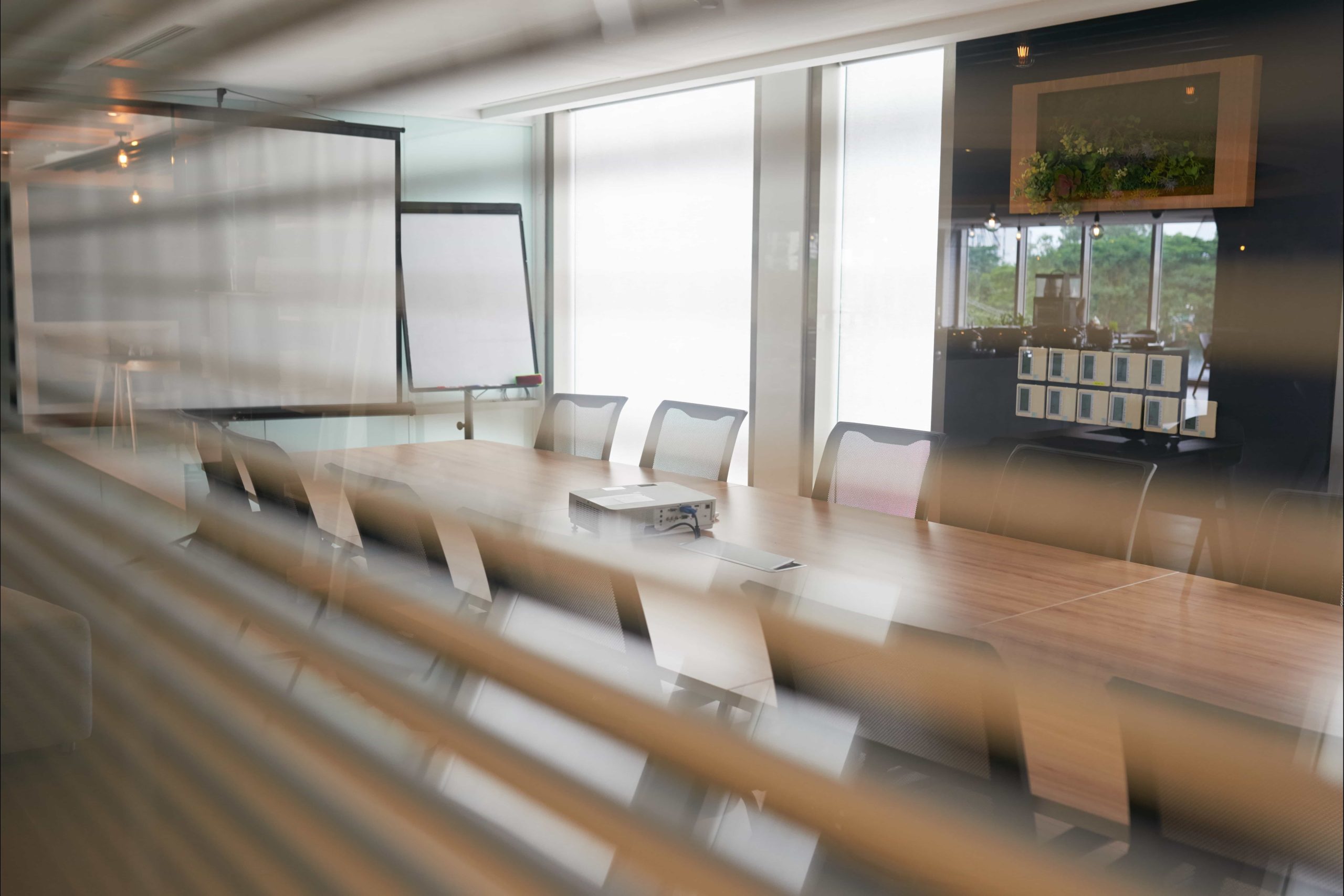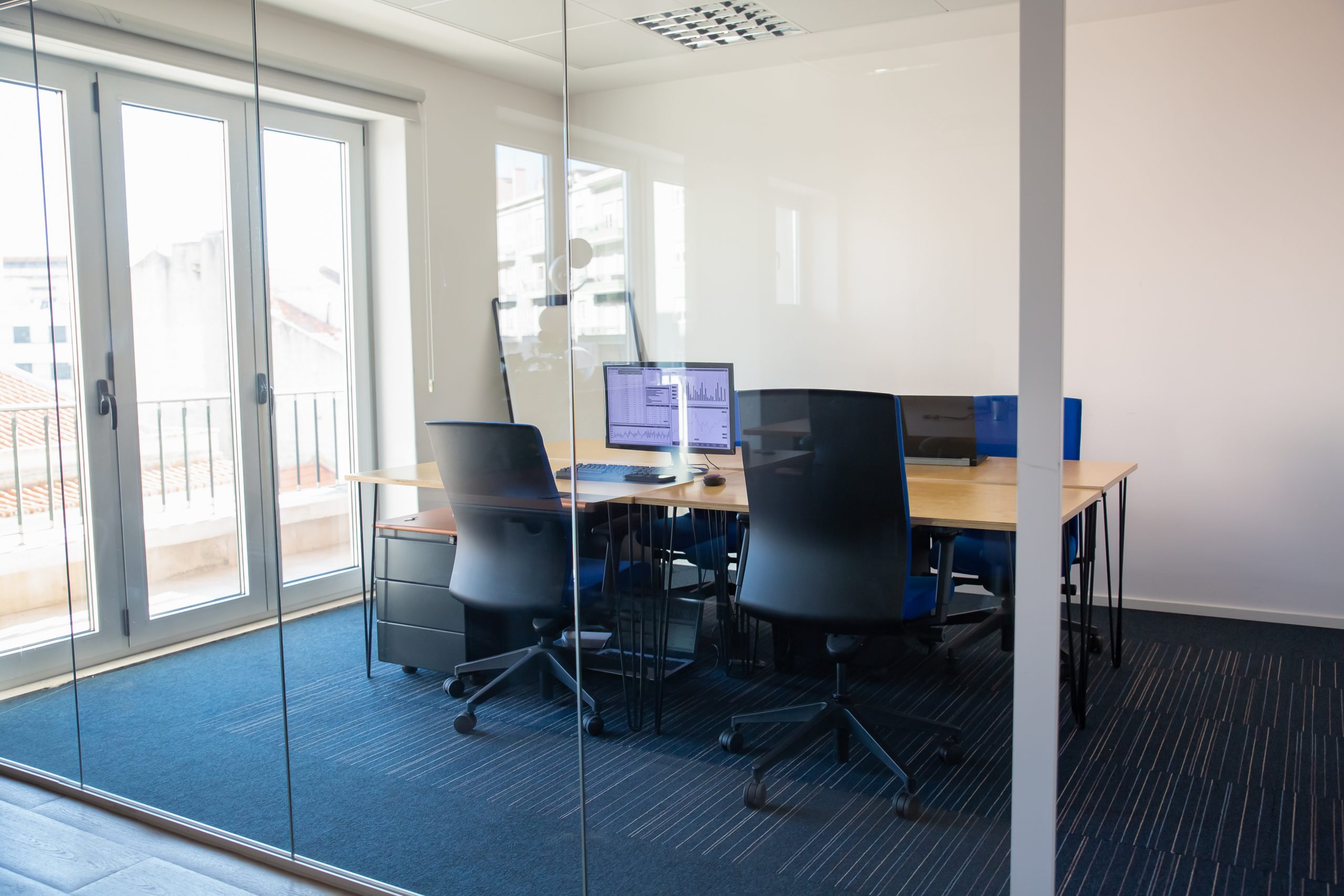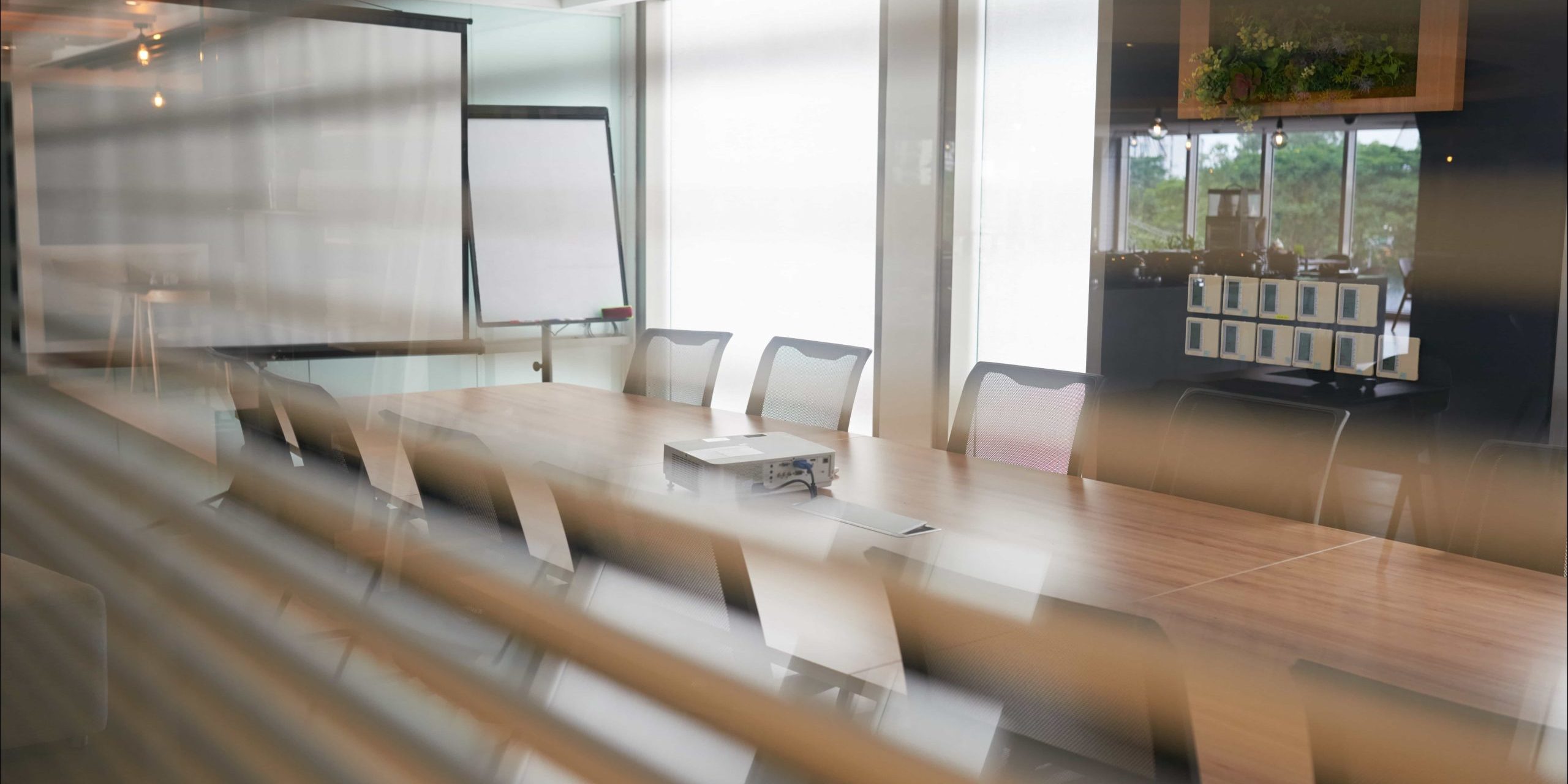 Office partition walls are essential in modern office design, providing flexible and efficient ways to divide and organize workspace. Available in various materials like brick, concrete, glass, and wood, these walls can be temporary or permanent, suiting different needs and aesthetics.
Office partition walls are essential in modern office design, providing flexible and efficient ways to divide and organize workspace. Available in various materials like brick, concrete, glass, and wood, these walls can be temporary or permanent, suiting different needs and aesthetics.
In today’s dynamic work environments, partition walls create private workspaces, reduce noise, and enhance productivity without extensive renovations in Malaysia. This cost-effective solution helps businesses optimize office layouts and easily reconfigure spaces as needs change.
Types of Office Partition Walls
Permanent vs. Temporary Partitions
Permanent partitions are fixed structures made from materials like drywall or glass. They are ideal for creating private offices and conference rooms that require stable and long-term division.
Temporary Partitions, on the other hand, are designed for flexibility. They can be easily moved or reconfigured, making them perfect for dynamic work environments and open-plan offices needing temporary meeting spaces or project-specific privacy.
Material-Based Categories
- Glass Partitions: Glass partitions are popular for their sleek, modern look and ability to allow natural light to flow through the office. They can be clear, frosted, or tinted, offering varying levels of privacy. Glass partition walls create a sense of openness while still providing separation. They are affordable, lightweight, and easy to construct, with options made from sheets or hollow blocks that provide aesthetic appeal, privacy, and sound insulation.
- Wood Partitions: Wood partitions add a touch of warmth and elegance to office spaces. They can be solid or have decorative elements like latticework. Wood partitions are often used in executive offices or areas where a more traditional aesthetic is desired.
- Brick Nogging Partition Wall: Brick nogging partition walls are constructed within a framework of wooden members, using bricks laid flat or on edge. These walls include structural elements such as vertical posts and nogging pieces, providing soundproofing and non-flammable properties.
- Metal Partitions: Metal partitions are durable and offer a contemporary industrial look. They are often used in tech companies or creative spaces where a modern, edgy design is preferred. Metal partitions can also be combined with other materials like glass for a unique look.
- Concrete Partition Wall: Concrete partition walls are known for their structural characteristics and various construction methods. They can be made from precast or cast in situ concrete, supporting vertical loads and providing resistance against horizontal forces like earthquakes.
- Fabric Partitions: Fabric partitions are lightweight and easily moved or reconfigured. They are often used in open-plan offices to create temporary workspaces or to reduce noise. Fabric partitions come in various colors and patterns, allowing customization to match the office decor.
- Metal Lath Partition Wall: Metal Lath partition walls are strong and durable options for interior space separation. They involve framing with steel or timber and using galvanized iron wire to secure the metal lath, offering advantages in insulation against heat and sound.
- Wood Wool Partition Wall: Wood wool partition walls are used to divide internal spaces for privacy and functionality. They cater to modern demands for multi-room construction and privacy, employing materials like wood wool.
Feature-Specific Types
- Soundproof Partitions are designed to reduce noise and create quiet workspaces. They are ideal for open-plan offices, call centers, or recording studios. Hollow glass blocks are commonly used for their soundproof insulation, lightweight nature, and easy maintenance.
- Fire-Resistant Partitions: Fire-resistant partitions are made from materials that can withstand high temperatures and prevent the spread of fire. They are crucial for ensuring workplace safety and are often used in areas that require strict fire safety regulations.
- Plain Brick Partition Wall: A plain brick partition wall is constructed using plain bricks laid in cement mortar. This type of wall is known for its strength, cost-effectiveness, and fire-resistant properties, making it suitable for both residential and commercial interiors.
- Reinforced Brick Partition Wall: A reinforced brick partition wall provides enhanced strength and structural integrity compared to plain brick partition walls. The reinforcement is achieved through the use of wire mesh or steel bars, which are strategically placed at every third or fourth course to support additional loads and improve performance.
- Decorative Partitions: Decorative partitions add an aesthetic element to the office space. They can be made from various materials and feature artistic designs or patterns. Decorative partitions enhance the visual appeal of the office while still providing functional separation.
Modular Systems
Modular partitions are highly flexible and easily assembled, disassembled, and reconfigured. They are ideal for offices that need to adapt to changing space requirements. Modular systems offer the benefit of scalability, allowing businesses to expand or reduce their workspace as required. They are also cost-effective, as they can be reused and reconfigured multiple times.
Accordion Walls
Accordion walls are flexible, folding partitions that can be expanded or contracted. They are perfect for creating temporary divisions in large spaces, such as conference rooms or event halls. Accordion walls are easy to operate and can be quickly adjusted to suit different needs. They offer a versatile solution for offices that require adaptable space configurations.
Benefits of Installing Office Partition Walls
Enhanced Privacy
Office partition walls are instrumental in creating private workspaces and meeting areas within an open-plan office. By installing partitions, businesses can provide employees with personal spaces to focus on tasks without distractions. This is particularly beneficial for tasks that require concentration or confidentiality, such as client meetings or sensitive discussions. Partitions can also be used to create dedicated meeting rooms, ensuring that conversations remain private and uninterrupted.
Improved Acoustics
Office partition walls significantly improve workplace acoustics by reducing noise levels, especially in open-plan offices. Soundproof partitions minimize disruptions, enhance focus, and boost productivity. Reinforced brick walls with wire mesh strips further improve soundproofing, allowing employees to work more efficiently in quieter environments.
Aesthetic Appeal
Office partition walls enhance workplace aesthetics with various materials, colors, and styles to match any decor. Glass partitions create a modern, sleek look, while wood adds warmth and sophistication. Decorative designs can further elevate the space, making it more inspiring. Thoughtfully chosen partitions help reflect a business’s brand and culture while improving the workspace’s appeal.
Cost-Effective Space Management
Installing office partition walls is a cost-effective alternative to traditional walls, offering lower installation costs and easy reconfiguration. Unlike permanent walls, partitions save time and expenses, allowing businesses to adapt layouts efficiently and maximize space usage.
Choosing the Right Partition Wall for Your Office
Assessing Your Needs
When selecting the right partition wall for your office, you must assess your needs. Consider the following factors:
- Space: Determine the space you must divide and how the partitions will fit into your office layout. Consider whether you need to create private offices, meeting rooms, or collaborative spaces.
- Privacy: Evaluate the level of confidentiality required for different areas. For example, you might need soundproof partitions for confidential meetings or less private partitions for open workspaces.
- Aesthetic Considerations: Consider the visual impact of the partitions on your office design. Choose materials and styles that complement your existing decor and reflect your company’s brand and culture.
Material Considerations
The material of the partition walls plays a crucial role in their durability, maintenance, and appearance. Here are some common materials and their considerations:
- Glass: Glass partitions offer a modern and sleek look, allowing natural light to flow through the office. They are easy to clean and maintain but may require regular cleaning to keep them looking pristine.
- Wood: Wood partitions add warmth and elegance to the office. They are durable and can be customized with various finishes. However, they may require more maintenance to prevent wear and tear over time.
- Brick Partition Wall: Brick partition walls divide interior spaces for privacy and acoustics. Types include plain, reinforced, and brick nogging partition walls. As a general category, a brick wall offers durability and soundproofing benefits, making it an economical and structurally beneficial choice.
- Metal: Metal partitions are highly durable and provide an industrial, contemporary look. They are low-maintenance and can be combined with other materials like glass for a unique design.
- Concrete Slab: Concrete slabs, which can be plain or reinforced, provide structural support and stability in partition walls. These slabs may be precast or cast in situ, enhancing the durability and stability of the walls.
- Plain Asbestos Cement Sheet: Plain asbestos cement sheets are used to create lightweight and rigid partition walls. These sheets, often connected to a core made of furrowed asbestos cement, offer structural benefits and specific construction specifications.
- Fabric: Fabric partitions are lightweight and versatile. They can be easily moved and reconfigured, making them ideal for dynamic work environments. However, they may require regular cleaning to maintain their appearance.
Budget Planning
Budget is a critical factor when choosing partition walls. Here are some typical costs associated with different types of partition walls:
- For those prioritizing a modern, sophisticated look, glass partitions are a higher-end choice. Their initial cost reflects the material and installation complexity, but they offer durability and aesthetic value over time.
- If you’re seeking a timeless design, wood partitions offer mid-range pricing. The cost depends on the type of wood and finish, making them an elegant option for various styles.
- Businesses aiming for affordability and durability often turn to metal partitions. They provide a sleek, industrial appeal at a reasonable price, with great long-term resilience.
- Looking for the most economical solution? Fabric partitions are the go-to choice. They’re ideal for temporary spaces or flexible office layouts and are easy to install and reconfigure.

Maintenance and Care of Partition Walls
Cleaning Tips
Proper cleaning is essential to maintain the appearance and functionality of your office partition walls. Here are some best practices for different materials:
- Glass Partitions: Use a glass cleaner and a microfiber cloth to remove smudges and fingerprints. Avoid using abrasive cleaners that can scratch the surface. Regular cleaning will keep the glass looking clear and pristine.
- Wood Partitions: Dust wood partitions regularly with a soft cloth. Use a mild wood cleaner or a mixture of water and vinegar for deeper cleaning. Avoid using excessive water, as it can damage the wood. Polish the wood occasionally to maintain its shine and protect the surface.
- Metal Partitions: Clean metal partitions with a damp cloth and a mild detergent. Dry the surface thoroughly to prevent rust or corrosion. Use a stainless-steel cleaner to remove fingerprints and maintain the finish for stainless steel partitions.
- Fabric Partitions: Vacuum fabric partitions regularly to remove dust and debris. Use a fabric cleaner or a mixture of water and mild detergent for stains. Test the cleaner on a small, inconspicuous area first to ensure it doesn’t damage the fabric.
Longevity Tips
To ensure your partition walls last longer, follow these longevity tips:
- Regular Inspections: Conduct regular inspections to identify any signs of wear and tear. Addressing issues early can prevent further damage and extend the life of your partitions.
- Proper Usage: Encourage employees to use the partitions properly and avoid leaning or applying excessive force on them. This will help prevent damage and maintain their structural integrity.
- Protective Measures: Use protective measures such as corner guards or bumpers to prevent damage to office furniture or equipment. This is especially important for high-traffic areas.
- Maintenance Schedule: Establish a maintenance schedule for cleaning and inspecting the partitions. Consistent care will keep them in good condition and prolong their lifespan.
Common Issues and Fixes
Here are some common issues with partition walls and how to address them:
- Scratches and Scuffs: Use a glass repair kit to fix minor scratches on glass partitions. Use a wood filler or touch-up pen to repair scratches on wood partitions. Metal partitions can be polished to remove minor scuffs.
- Loose Panels: If you notice any loose panels, tighten the screws or fasteners to secure them. For modular partitions, ensure all connectors are properly aligned and locked.
- Stains and Discoloration: Treat stains promptly with a fabric cleaner for fabric partitions. Use a wood cleaner or polish to remove stains from wood partitions. A glass cleaner can remove any discoloration from glass partitions.
- Warping or Bending: If you notice warping or bending in wood or metal partitions, address the underlying cause, such as moisture or excessive weight. Replace any damaged panels to maintain the partitions’ structural integrity.
Conclusion
Choosing the right office partition walls is a crucial decision that can significantly impact your workspace’s functionality, aesthetics, and overall environment. By carefully evaluating your needs and options, you can make an informed choice that best suits your office requirements.
Consider your space’s specific needs, such as privacy, acoustics, and design preferences. Assess the materials available, considering their durability, maintenance, and appearance. Budget planning is also essential to select a cost-effective solution that meets your financial constraints.
Remember, partition walls can enhance productivity, improve acoustics, and contribute to a visually appealing office. Whether you are planning a minor upgrade or a full-scale office renovation in Malaysia, the right partitions can help you create a more efficient and pleasant work environment for your team.






